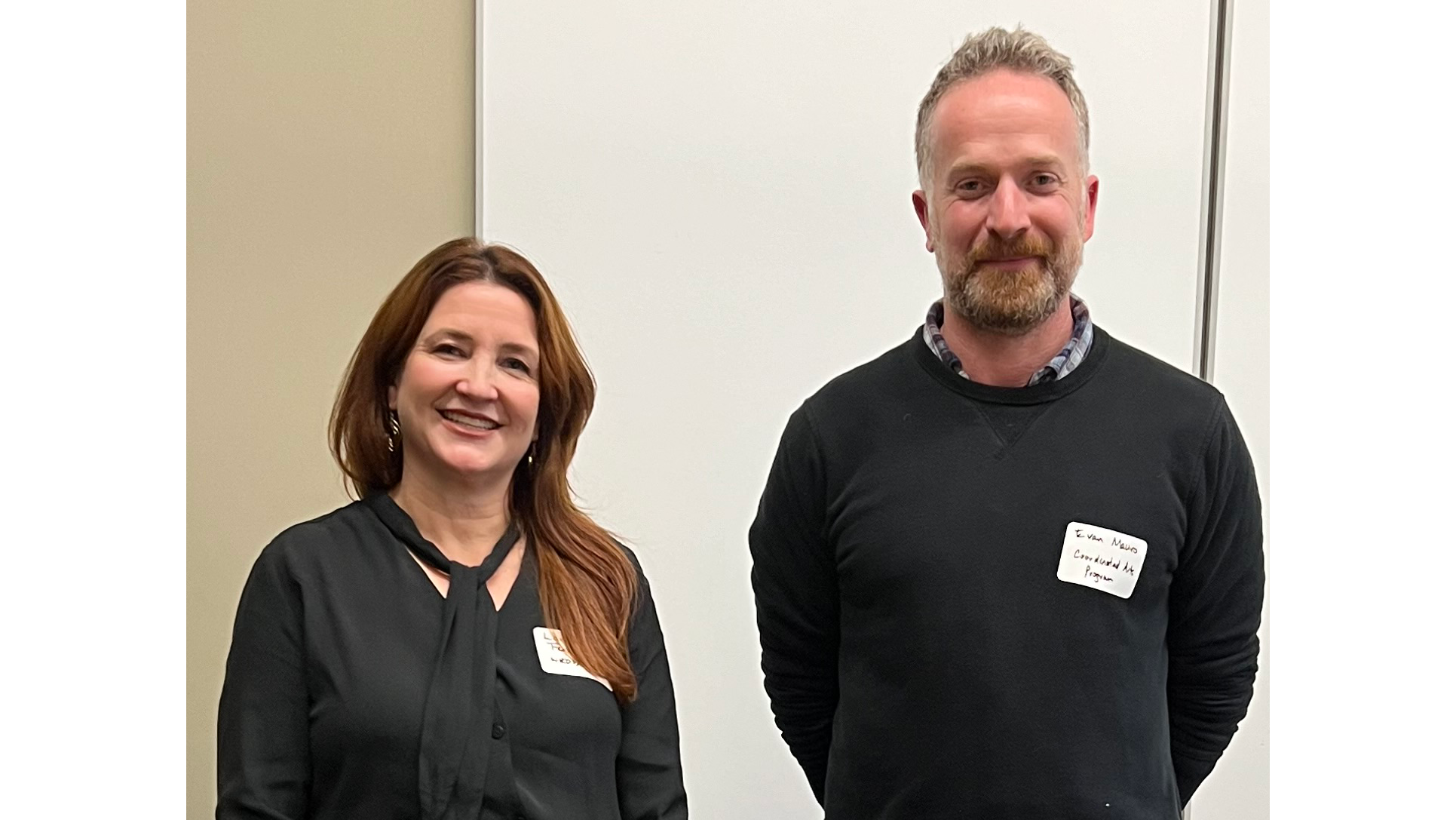Students, alumni, faculty and staff at the School of Journalism, Writing, and Media (JWAM) have been recognized for America’s Medical Supply Crisis with the Investigative Reporters and Editors Award, the top investigative journalism prize in North America.
America’s Medical Supply Crisis is an investigative documentary on the coronavirus crisis in the United States and its deadly consequences, produced by the Global Reporting Centre, in collaboration with FRONTLINE PBS and the Associated Press.
The documentary looked at how medical supply chains around the world collapsed under the pressure of the pandemic, and traced products like masks, ventilators and syringes.


Reporter Juliet Linderman at Northwell Health medical supply warehouse, learning about the role of GPOs and just-in-time delivery. Photo by Timothy Grucza
It has been recognized in the Video (Division 1) category and praised for exposing the United States’ flawed medical supply system and inadequate preparation for large public health crises.
“This is a huge accomplishment for our small journalism organization, beating out much more established news organizations in one of the most prestigious prizes in North America,” said JWAM professor and executive director of the Global Reporting Centre, Peter Klein.
Klein, who is the director of the documentary and runs the supply chain research team, recruited his colleague, Dr. Jane Lister, as well as students and scholars from the University of British Columbia and across the globe. They contributed immensely with their valuable research and helped with fact-checking, writing and in the production of the project.
“This project would not have been possible without the extensive team of knowledge we pulled together, very quickly, at the height of the COVID-19 crisis,” he said.
Klein worked with graduate students in journalism and related academic fields to examine why the U.S. faced a desperate shortage of personal protective equipment (PPE) as COVID-19 swept the country. They revealed how the downturn of American manufacturing and poor U.S.-Asia supply chains left the country scrambling for critical medical supplies.
“The journalists exposed and tracked down the myriad people trying to sound the alarm and used data to underscore their point. And their work met the moment when the stakes could not be higher as the world faces an unprecedented pandemic,” IRE judges said.
This production started just weeks into the pandemic, with travel and social-distancing restrictions, and the team had to invent a new form of documentary storytelling, with remote filming and editing. “We learned on-the-fly how to make a film under lockdown, and everyone rose to the challenge,” said Klein.
The hour-long film is accompanied by a multimedia project that looks at four key medical supplies, as well as teaching modules developed by the Pulitzer Center for Crisis Reporting.
The project was made possible with funding from the Social Sciences and Humanities Research Council (SSHRC) and Humanity United.


